UN Security Council: Switzerland can play role of ‘bridge-builder’
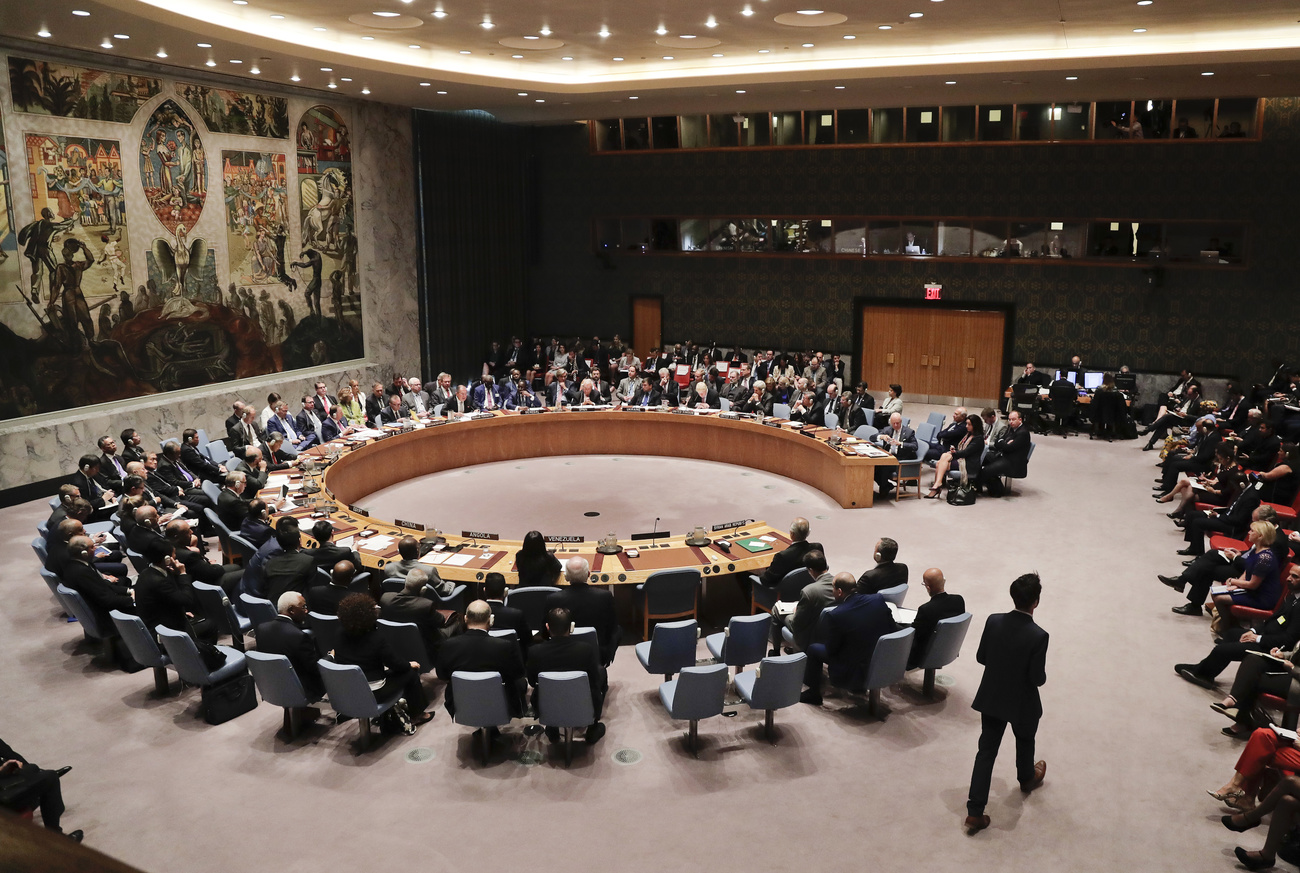
On June 9, Switzerland was elected to the United Nations Security Council as a non-permanent member for the first time in its history. What can a small state achieve with a seat on the global body? SWI swissinfo.ch asked Achim Steiner, head of the UN Development Programme (UNDP).
SWI swissinfo.ch: Twenty years after joining the UN, Switzerland now has a seat on the Security Council. Russia, one of the five permanent members, has attacked another UN member, Ukraine. What can a small non-permanent member state like Switzerland do in a situation like this?
Achim Steiner: For decades, Switzerland has used its size as a small country on the international stage as a mediator. It’s no coincidence that the second-largest seat of the UN is located in Geneva.
Switzerland understands how to promote Geneva as a place for meetings and negotiations.
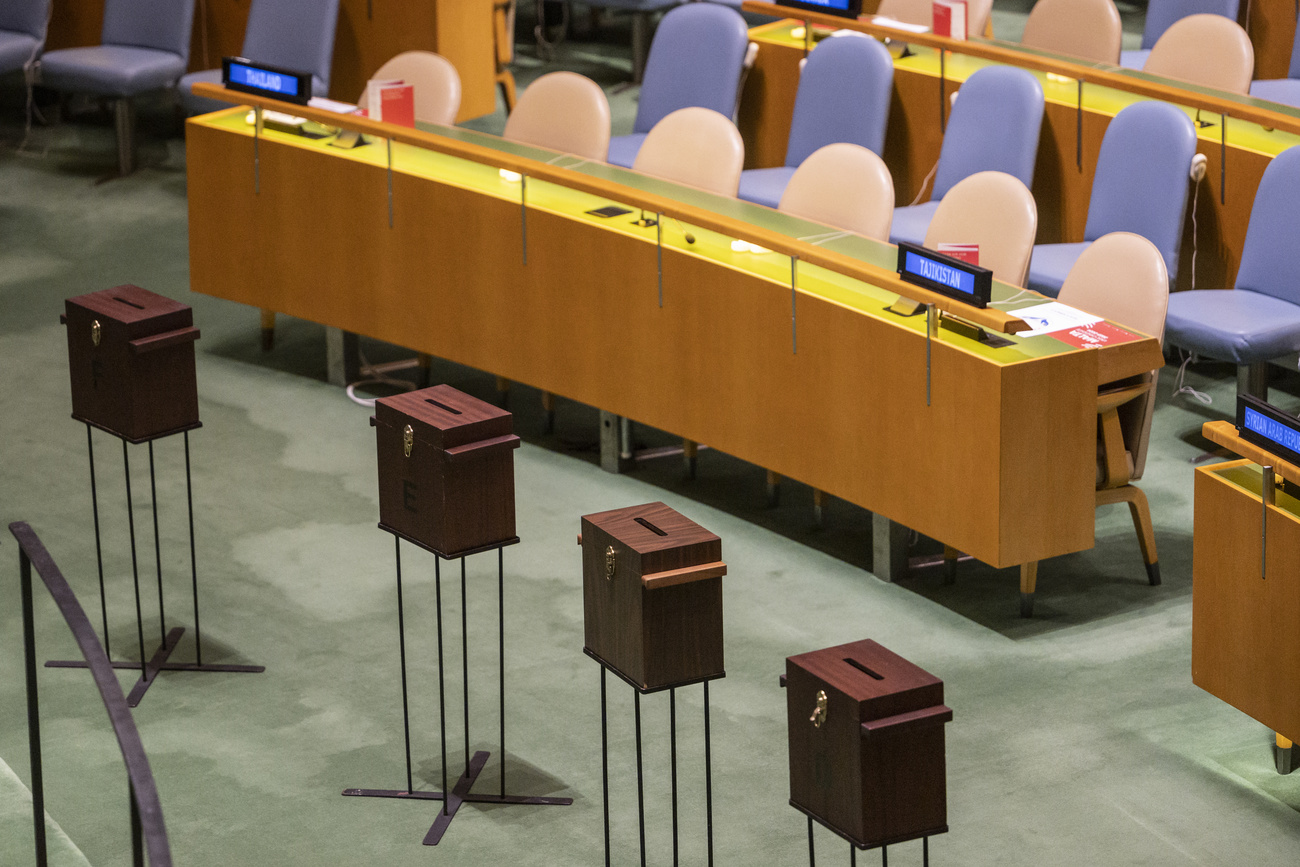
More
Switzerland elected to UN Security Council
But with its seat on the Security Council, it now faces a new challenge, as the question arises about conflict situations: which side are you on?
Switzerland would do well to present a clear and distinct profile in the Security Council.
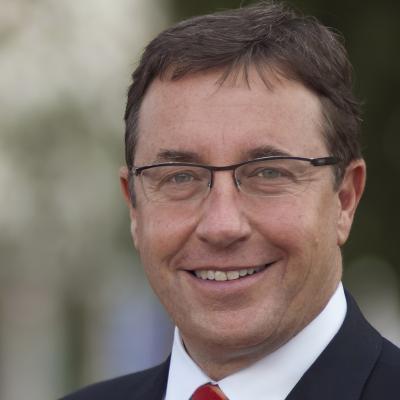
SWI: In the run-up to the Security Council vote, the country’s profile was the subject of intense debate in Switzerland. Its policy of neutrality has been called into question over the war in Ukraine. Meanwhile, the war has pushed Sweden and Finland, both neutral throughout the Cold War, to apply to join NATO. Is the idea of neutrality compatible with Security Council membership?
A.S.: I would definitely say yes because the UN is not a partisan organisation. It has 193 member states today with many different kinds of regimes and ideologies.
And just as Switzerland’s membership of the UN over the past 20 years has not called its neutrality into question, neither will its seat on the Security Council.
The world needs great strength right now not to lose itself in the current military drama. We need to find strength to make it clear to a country like Russia that its aggression against Ukraine is incompatible with UN principles. And since we already know from history that war always leads to more suffering and a dead end, it is important to show the alternatives to war and violence. In this regard, I expect Switzerland to play an important role in the coming years.
SWI: We shouldn’t just focus on Russia’s war against its neighbour, which is a violation of international law and the UN Charter. There are serious shortcomings among other UN member states when it comes to basic rights laid down in the Universal Declaration of Human Rights. Are these texts still relevant?
A.S.: I have not met a single person who fundamentally questions the Universal Declaration of Human Rights. You cannot argue that fundamental liberties such as freedom of expression and freedom of assembly should be abandoned.
But we can clearly see that their interpretation varies significantly between countries and societies. Also, human rights are often dealt with in a very instrumental way: when it suits us, we take these fundamental principles very seriously, but when it doesn’t suit, everything is suddenly very relative. This generates disappointment and contradictions.
For us at the UN, it’s important to remind ourselves of these principles on a daily basis and to work with the realities that often deviate from these considerably. In this respect, too, Switzerland can play a role as a bridge-builder.
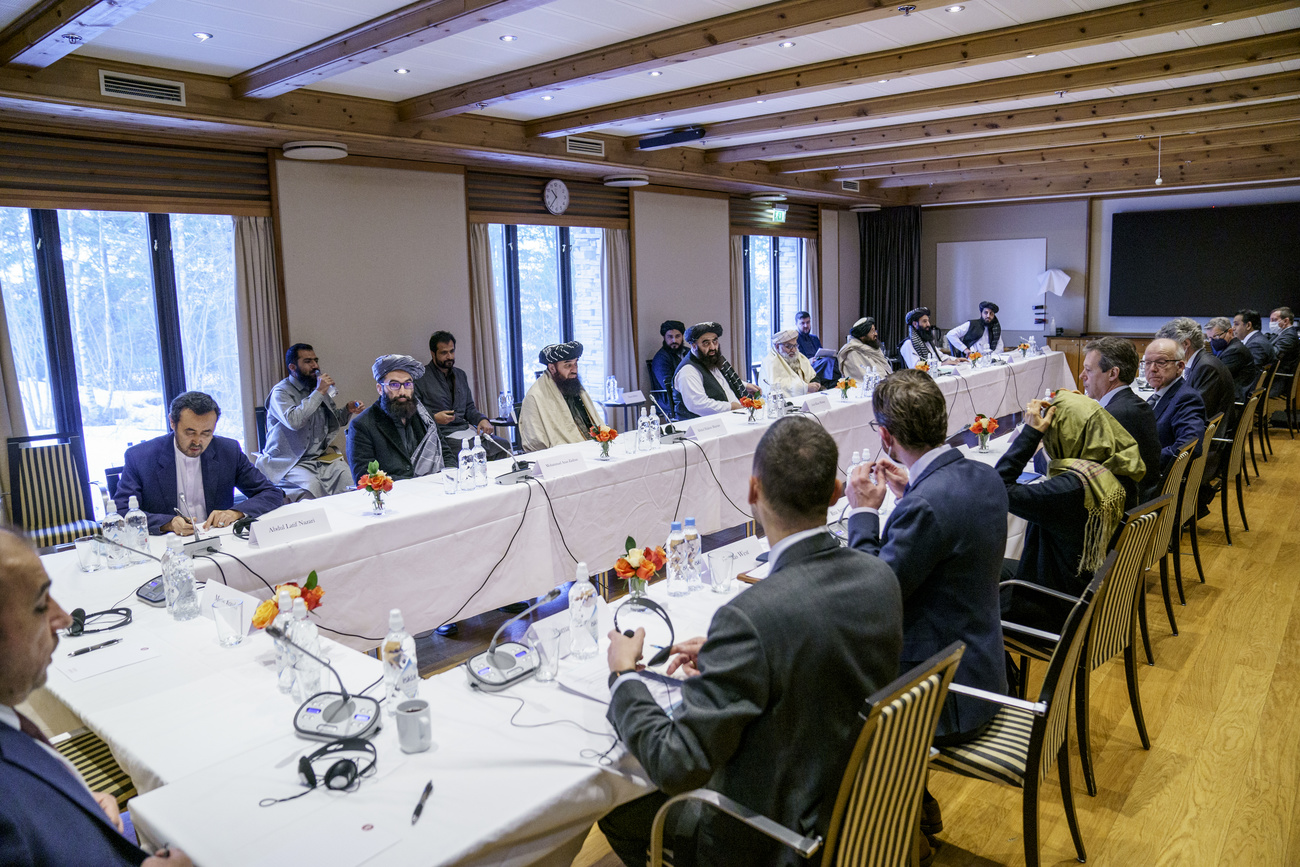
More
UN Security Council: how small states skilfully play their cards
Translated from German by Simon Bradley

In compliance with the JTI standards
More: SWI swissinfo.ch certified by the Journalism Trust Initiative






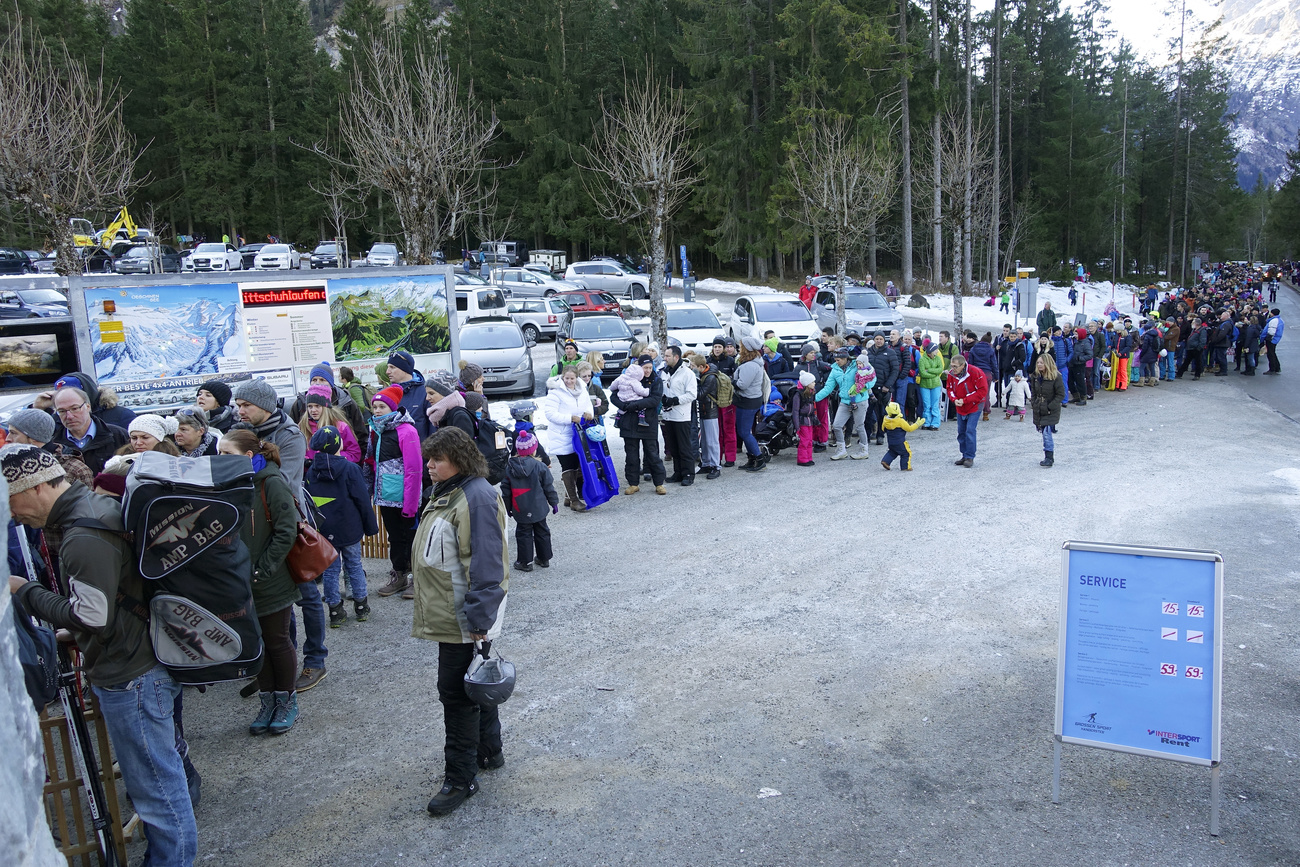


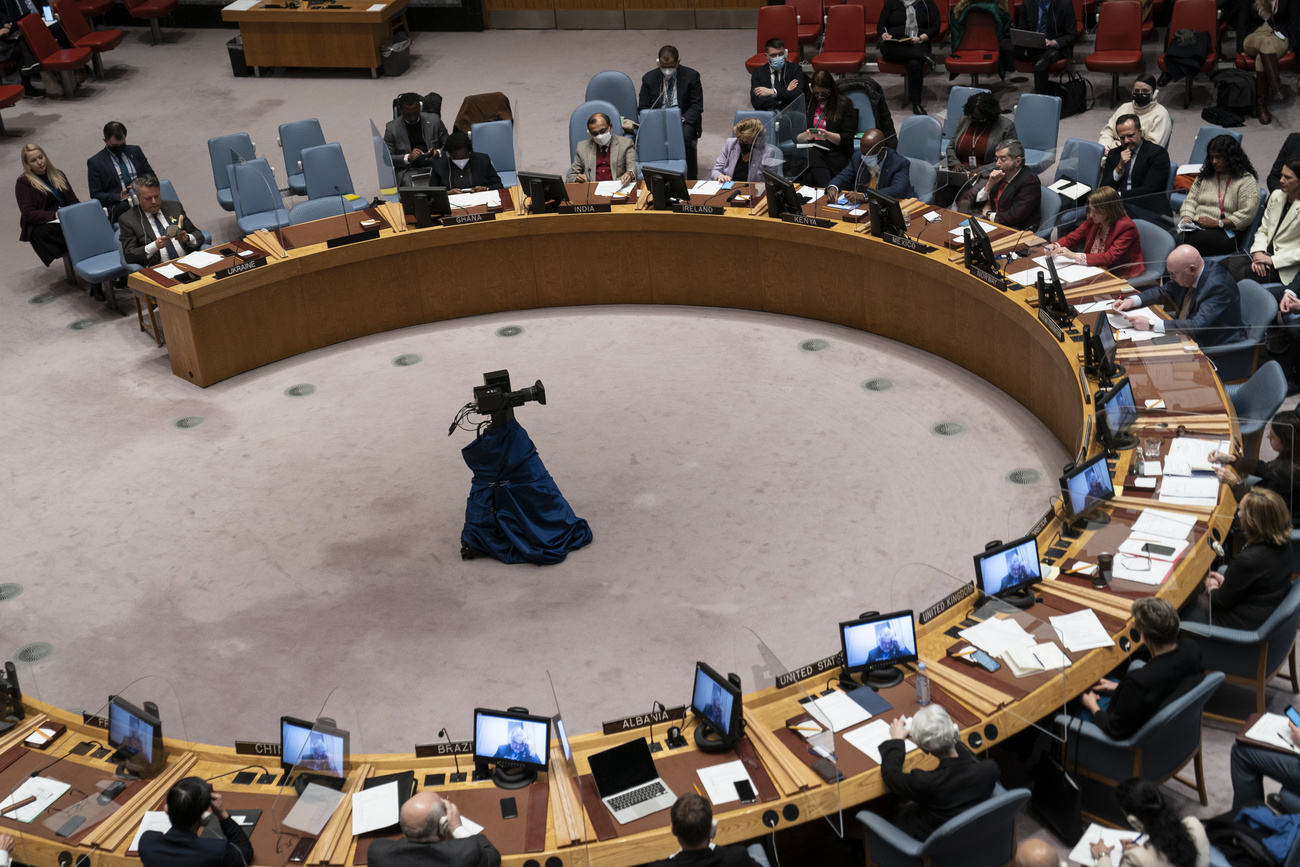
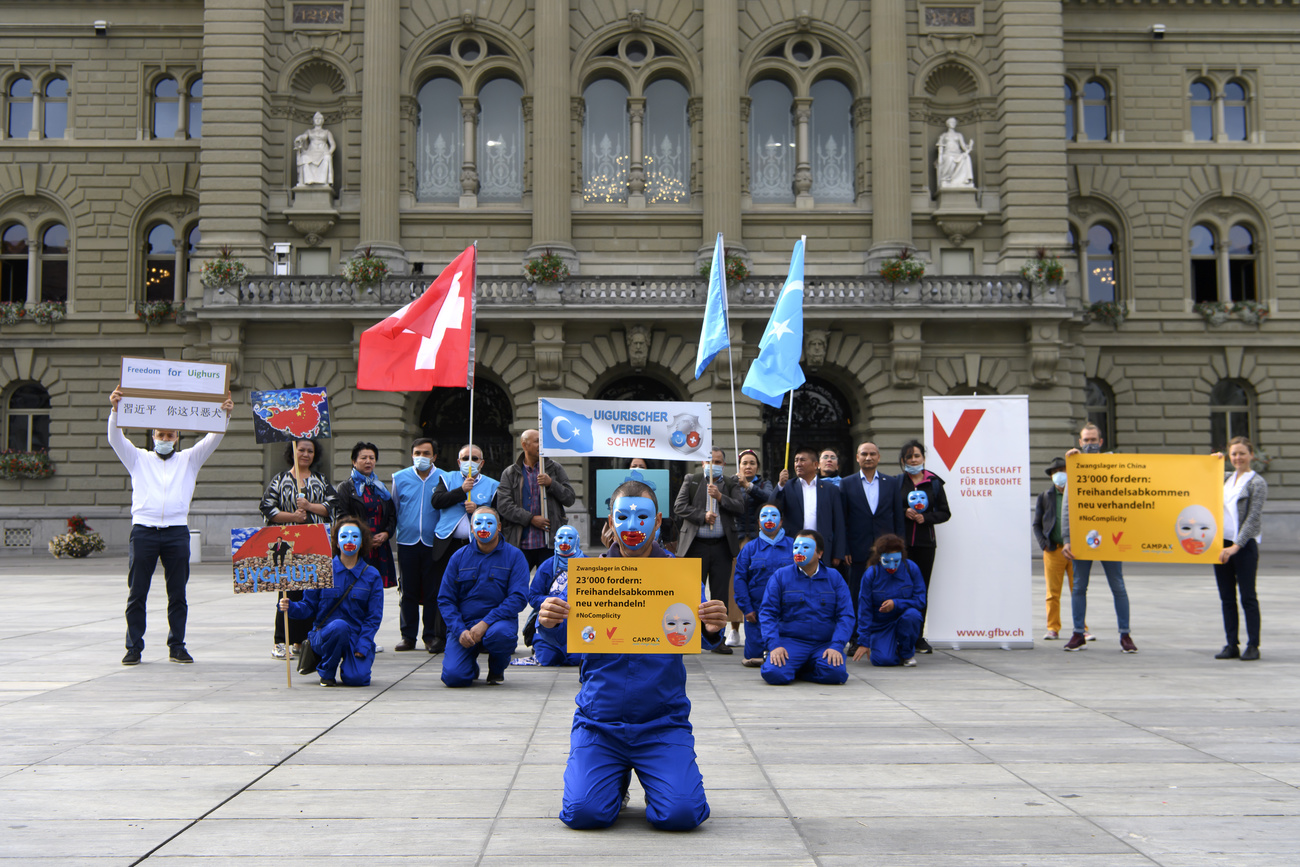
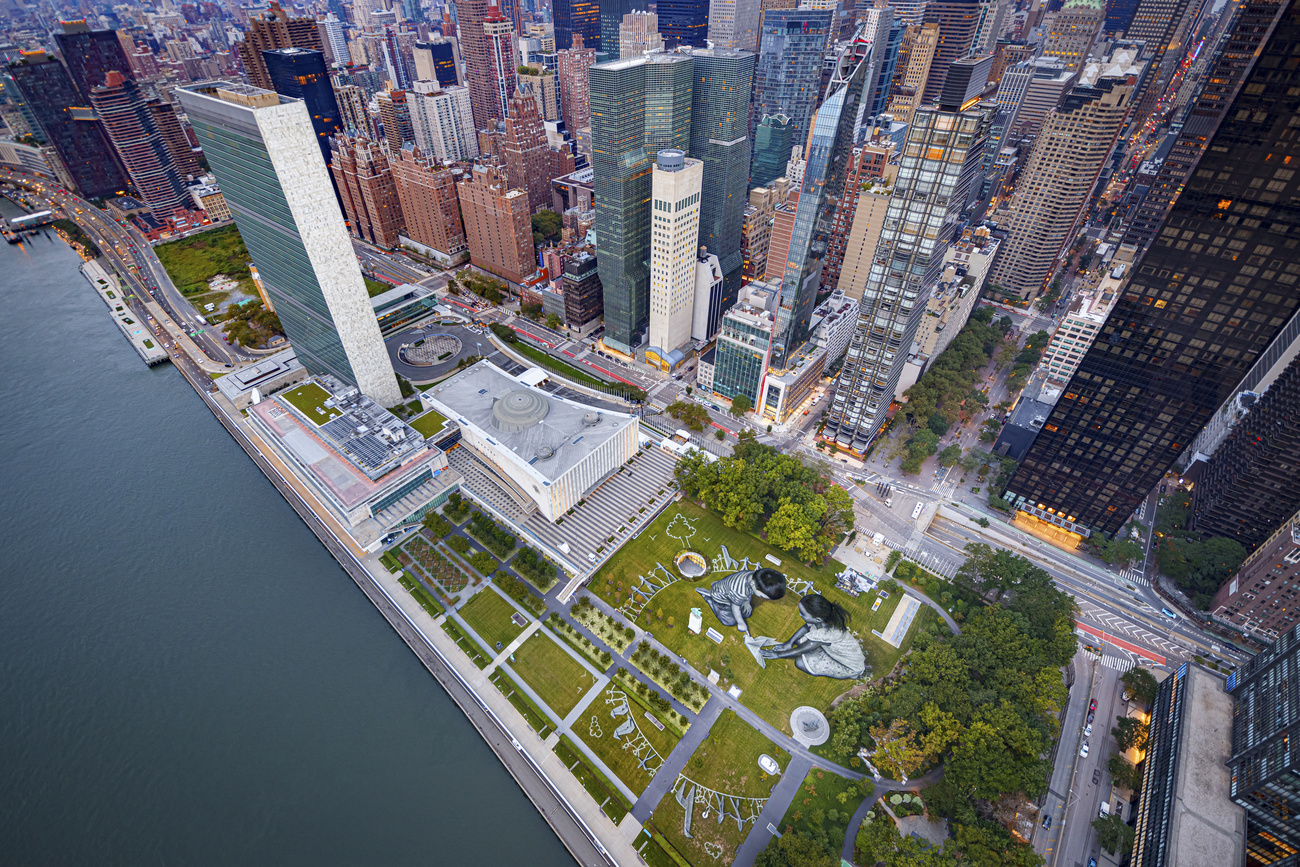
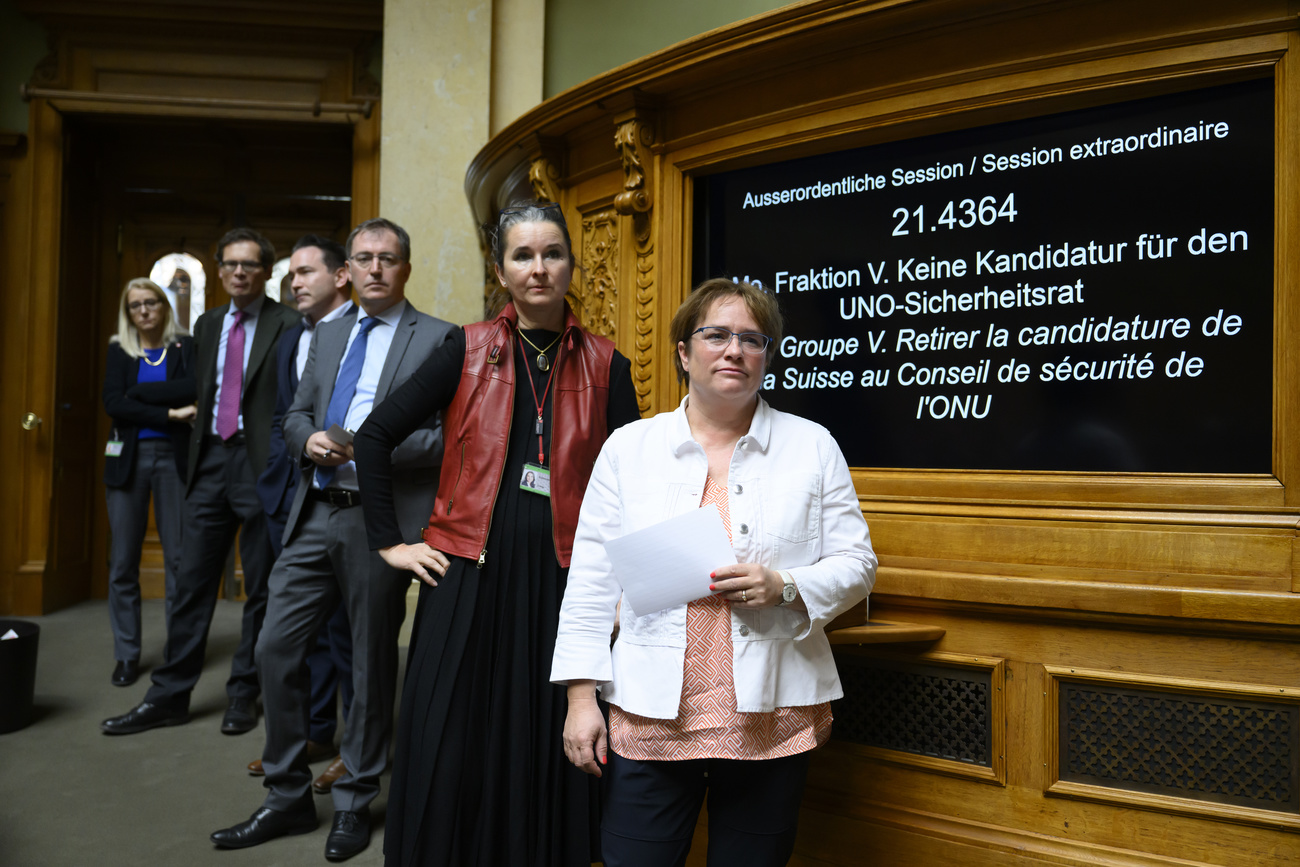
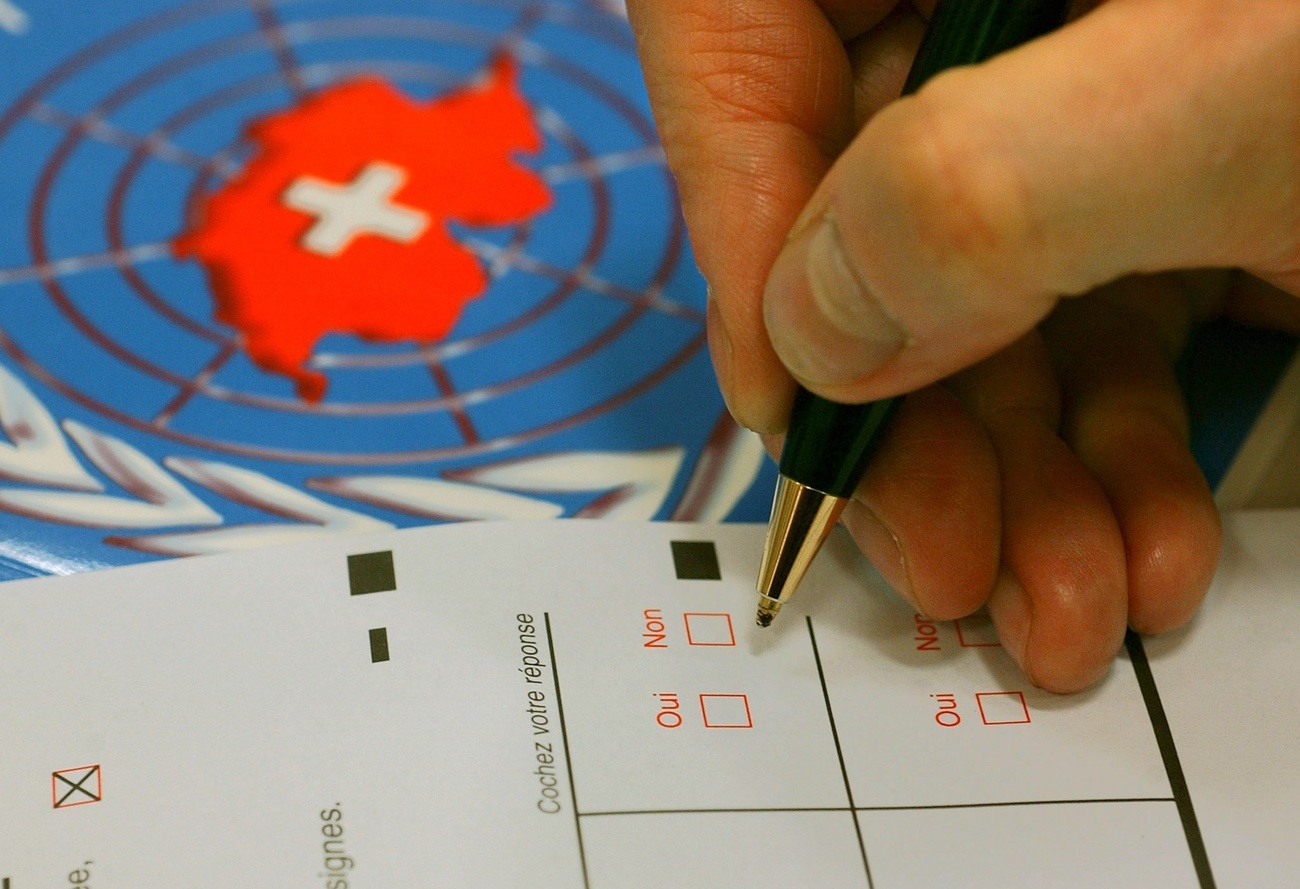
You can find an overview of ongoing debates with our journalists here . Please join us!
If you want to start a conversation about a topic raised in this article or want to report factual errors, email us at english@swissinfo.ch.